The Nokia G42 5G is user-repairable – at least the battery and some parts, and has a great warranty and OS/Security Patch policy.
But at $449, it offers little more than a more mainstream Qualcomm SD480+ SoC over the UniSoc T606 found in its $349 Nokia G22 – DIY repairable. Motorola has the $329 G53, $399 G62, and $449 G42 that all meet or exceed the Nokia G42. As we often say of Nokia, if you ignore the price and accept that you pay more for the Volvo of the smartphone world, it is a decent handset.
What is user-repairable?
Nokia and iFixit Australia have spare parts, including the tools and screen ($94.99), charge port ($44.99), battery ($52.99) and rear cover ($52.99), that are user-replaceable. Interestingly, it promotes its 800-charge cycle battery (and still takes an 80% charge), which lasts about 60% longer than the 500-cycle batteries used on lower-cost smartphones. You are going to get 4-5 years out of it anyway.
iFixit also has agreements with Google and Samsung for selected model parts, and it is a move we applaud that needs to go so much further.
Australian review: Nokia G42 5G 6/128GB Dual sim hybrid with microSD Model TA-1581 DS 6/128
| Website AU | Product Page |
| Price | $449 |
| From * | Harvey Norman, Nokia Online, JB Hi-Fi |
| Warranty | 24-months ACL |
| Made in | China |
| Company | See above |
| More | CyberShack Nokia news and reviews. Note that Nokia did not participate in CyberShack’s review program until 2023. |
Deep-Dive review format
It is now in two parts – a summary (the first) and a separate 300+ line database-driven spec, including over 70 tests to back up the findings. It also helps us compare different phones and features.
We use Fail (below expectations), Passable (meets low expectations), Pass (meets expectations), Pass+ (near Exceed but not class-leading) and Exceed (surpasses expectations or is the class leader) against many of the items below. These are based on the price bracket as well. You can click on most images for an enlargement.
* Grey market – no Australian warranty, and 5G won’t work
We strongly advise you to buy a genuine model with Australian firmware. It is easy to identify the Australian version – under Settings>System>Certification, there is an Australian RNZ C-tick mark. There is also an RNZ C-Tick on the box. They use unique Australian 5G sub-6Ghz and 5G low-band frequencies, requiring local activation first. Read Don’t Buy a Grey Market Phone (guide)


First Impression – Pass
Nokia has a sustainability push – a large part of the frame and back is made from recycled plastic. While we appreciate the effort, our research shows that consumers generally won’t pay more for that when buying. Why? Sustainable practices are expected now!
It looks well-made, has a three-year warranty, and can be repaired. But under the hood is a basic Qualcomm SD480+ four-cylinder, naturally aspirated motor. That has long been superseded by the SD4 Gen 1 and Gen 2. Some in this price bracket use SD690/695 5G SoC and offer 1080p screens.
Regardless, everything is fit for purpose, provided you remember this is an entry-level device at an above-entry-level price.
Screen – 6.5”, 1600 x 720, 60/90Hz IPS LCD – Pass
Nokia claims 560nits peak brightness, but the reality is that typical brightness is a maximum of 389 nits and a peak of 490nits in 2% of the screen when playing video. It has quite a low contrast of 990:1, meaning blacks are more greys. It has a distinct blue cast, but you can adjust that with the white balance slider. Colours are inaccurate at a Delta E of >6 (<4 is good).
Gorilla Glass 3 offers some scratch protection. The selfie camera uses the older style ‘notch’.
It is not for gamers – 35ms GtG and the Qualcomm SoC just don’t cut it.
Summary: It is not a bad screen, but you can get 1080p screens for similar money.
Processor – Qualcomm SD480 Plus – Pass
It is an 8nm chip with two fast cores and six slow ones. Performance as a phone is reasonable. You only see lag when you have too many Apps open.
The 6/128GB is standard for this category, and it is nice to have a hybrid (shared with SIM 2) microSD slot to 1TB.
It does not Throttle under load (good), but it gets a tad warm at 44° – not an issue. USB-C 2.0 allows OTG cut and paste to external flash and SSD drives to 1TB.

Summary: There is enough power for decent phone-level performance, but it can lag under load.
Comms – Pass
- Nokia claims it is Wi-Fi 6 AX ready – it is not. The SoC supports a maximum of Wi-Fi 5 AC and 433Mbps half-duplex data transfer rates. It holds a 433Mbps Wi-Fi signal up to 10m from the router.
- The dual-band GPS is accurate to 3m, so it should be fine for in-car navigation.
- USB-C 2.0 does not support audio/video/data streams, so the only way to show a screen on a TV is via casting.
- NFC is standard in this category.
4/5G – Pretty good – Pass+
Qualcomm knows how to make 5G modems, so much so that Apple use them instead of its own. This gets a strong, usable signal on the closest four towers. It is suitable for the city, suburb, and regional use with reasonable tower coverage. It may not be ideal for rural use. It has a dual hybrid SIM.
Battery – Pass+
Nokia claims 800 full recharge cycles and will still hold 80% charge – far better than Samsung et al., which use 300-500 cycle batteries. Ironically, the QuickFix program has a battery you will probably never need.
It does not come with a charger. Nokia claims it can charge at 20W, but tests with several third-party USB-C PD, QC, and PPS chargers could only get 5V/3A/15W for the first 30% charge, and then it dropped back to 5V/2A/10W for the rest.
Tests (Adaptive screen)
- Charge: 15W 2 hours and 20 minutes fast charge and 10W 2 hours 45 minutes
- 1080p video 50% volume/brightness, aeroplane mode: 17 hours 21 minutes (slightly below expectations)
- PC Mark 3 battery life: 17 hours 9 minutes
- Accubattery: 17 hours and 49 minutes
- GFX Bench T-Rex (simple game): 7.6 hours
- 100% load Drain: 6 hours 44 minutes
- mA full load: 1350-1450 (slightly high)
- mA idle: 500-550 (slightly high)
Typical users should get two days. Nokia should not make a 20W charge claim unless it can provide a suitable charger.
Speaker – Mono – Passable
A single amp is used for the top earpiece (phone) or the bottom speaker (music or hands-free). It is for clear voice only. There is no EQ or presets. The maximum volume is about 80 dB.
BT 5.1 has a suite of codecs, including SBC, AC, LDAC, aptX, aptX HD, and aptX Adaptive. This means up to 24-bit, 96000Hz. There is excellent left/right stereo headphone separation.
Build – repairable – Pass+
Some phones like Apple are built from the screen in – remove the screen to reach the innards. Nokia uses the back-in – remove the back to get to things. It is far better and protects a fragile screen.
It is QuickFix – mentioned earlier – so it is nice to know you can get major parts if needed.
It is 165 x 75.8 x 8.55 mm x 193.8g, and the back and frame comprise a high percentage of recycled plastic. It has an IP52 rating to withstand light rain.
Perhaps its most outstanding feature is the colours – So Pink, So Purple, and So Grey.
We repeat that no charger comes with the phone, adding $33.95 for its 33W charger (maximum 11V/3A/33W).
OS – Android 13 – Pass+
Nokia uses pure Android 13 and will upgrade to 15. It has three years of security patch updates. Add to that the 2-year warranty, and it can be a keeper.
It has succumbed to installing bloatware for money Booking.com, Express VPN, GoPro Quik, Linkedin, Netflix, Quickstep and Spotify.
Security is via a fingerprint sensor on the power key. Face ID is 2D – not as secure.
Nokia G42 5g Camera – Pass, maybe more
It uses a 50MP bins to 12.5MP Samsung GN5 sensor – a ubiquitous sensor in this price bracket. There is a 2MP Depth sensor and a 2MP Macro. In other words – one sensor does all the work. Video is a maximum of 1080p@30fps, and any AI processing is straight ‘Qualcomm’, which takes several seconds for HDR and night shots.
The selfie is an 8MP Hynix Hi846 – adequate but nothing special.
Camera Comments
- 1X Day Primary sensor – the colours are natural but lack dynamic range. Good details in the background, shadows, and highlights.
- 2X Day Primary sensor – colours are natural. The background is getting noisy.
- 4X Day: Primary sensor – pushing its limits.
- 8X Day Primary sensor: Don’t go there.
- Macro: Has a macro sensor, but it is critical to get a 4cm focus
- Indoor office light: Colours are good, and the dog’s face/ears are almost black.
- Bokeh Depth: Good bokeh – perhaps a tad extreme.
- Dark <40 lumens: The standard (not night mode) is quite good, with adequate details and colours
- Night mode: Very much brighter and way more detail – way better than expected.
- Selfie: The 8MP selfie has natural skin tones, details, and a range of filters to enhance any image. Best in day and office light.
- Video (we are not video experts): You can shoot at 1080p@30fps. It struggles, and you would be better at 720p@30fps.








CyberShack’s view – Nokia G42 5G is a good phone, but it has very strong competition
The question is, what value do you put on the Nokia name, repairability, and decent 2+2+3 warranty and upgrade/security?
If you ignore the price and accept that you pay more for the Volvo of the smartphone world, it is a decent handset.
If you are just after a phone, there are cheaper ones. Look at OPPO A78 5G 128GB, Motorola G53 5G 128GB, and Samsung A15 5G 128GB for about $100 less. And for $50 more, Motorola’s 2022 Edge 30 Pro on runout is a bargain.
Rating
- Features: 75 – It is a moderately performing SD480 Plus with everything you could want. It loses points for the 720p screen and no charger inbox.
- Value: 75 – You can get better value for less in a competitive market. If you like Nokia, be prepared to pay a premium.
- Performance: 75 – It is an entry-level 5G SoC, and you get fit-for-purpose performance. It is not for gamers.
- Ease of Use: 80 – Pure Android, excellent 2+2+3 OS, and upgrade policy. Loses points for no charger inbox.
- Design: 80 All plastic is fine – it looks like a more expensive smartphone. Earns points for Gorilla Glass and replaceable battery.
Pro
Pure Android, 2+3 OS and patch policy
2-year warranty
Reasonable battery life (but unable to reach 20W and no charger in box)
Good phone reception for city, suburbs and regional use.
Decent camera gives surprisingly good results in low light.
Con
No charger inbox
Mono sound
SD480 Plus SoC is in much lower-cost phones
Dull display – not daylight-readable
CyberShack Smartphone comparison v 1.8 (E&OE)
Nokia G42 5G
| Brand | Nokia |
| Model | Nokia G42 5G |
| Model Number | TA-1581 DS 6/128 |
| Price Base | 6/128 |
| Price base | 449 |
| Warranty months | 24-months ACL |
| Tier | Upper entry level |
| Website | Product page |
| From | Harvey Norman, JB Hi-Fi, Officeworks, Nokia online |
| Made in | China |
| Company | Nokia is a smartphone brand owned by HMD Global in Espoo, Finland. Many ex-Nokia executives run it. Microsoft previously held the brand from 2014 to make Windows Mobile handsets. The G and X series are the sixth generation under HMD and represent a new naming convention. |
| Test date | 1-20 September 2023 |
| Ambient temp | 10-20° and some 30°+ days |
| Release | July 2023 |
| Other models not for Australia (Don’t buy) | Go to Settings, System, and Certification to check for RNZ C-Tick. Nokia brand is often grey-marketed, and we repeat the warning that you must buy the genuine Australian firmware model if you want 5G, VoWi-Fi and Wi-Fi calling. |
Screen
| Size | 6.5″ |
| Type | IPS LCD |
| Flat, Curve, 2D, 3D | Flat |
| Resolution | 1612 x 720 |
| PPI | 269 |
| Ratio | 20.1:9 |
| Screen to Body % | 0.827 |
| Colours bits | 8-bit/16.7m |
| Refresh Hz, adaptive | 60Hz fixed 60 or 90Hz Adaptive |
| Response 120Hz | Adaptive |
| Nits typical, test | Claim 450 (tested 389) |
| Nits max, test | Claim 560 with brightness boost (tested 490) |
| Contrast | No claim (990:1) |
| sRGB | No claim (80%) |
| DCI-P3 | N/A |
| Rec.2020 or other | N/A |
| Delta E (<4 is excellent) | >6 |
| HDR Level | Will downscale HDR10 content to SDR as the brightness is way too low. |
| SDR Upscale | No |
| Blue Light Control | Yes |
| PWM if known | Not detected |
| Daylight readable | No |
| Always on Display | No |
| Edge display | No |
| Accessibility | Usual Android features |
| DRM | Widevine L1 HD SDR |
| Gaming | It is not for gaming due to slow 35ms GtG and underpowered SoC. |
| Screen protection | Gorilla Glass 3 |
| Comment | Strong blue cast with adjustable white balance slider. |
Processor
| Brand, Model | Qualcomm SD480 Plus |
| nm | 8 |
| Cores | 2 x 2.2GHz & 6 x 1.9 GHz |
| Modem | X51 |
| AI TOPS | Approx 4 |
| Geekbench 6 Single-core | 747 |
| Geekbench 6 multi-core | 1916 |
| Like | Comparison here |
| GPU | Adreno 619 650MHz |
| GPU Test | |
| Open CL | 1094 |
| Like | |
| Vulcan | 924 |
| RAM, type | 6GB LPDDR4X |
| Storage, free, type | 128GB (98GB free) |
| micro-SD | Hybrid shared SIM slot to 1TB |
| CPDT internal seq. Read MBps | 405 |
| CPDT internal seq. write MBps | 348 |
| CPDT microSD read, write MBps | 83/33MBps |
| CPDT external (mountable?) MBps | Finds 2TB Kingston external SSD and allows OTG cut and paste backup. 31/38MBps |
| Comment | Overall, the SoC Is fit for purpose but one or two steps below competitors. Used in Moto G22/32/42/51/53/62, Nokia G42/G310/G50/XR20 |
| Throttle test | |
| Max GIPS | 173404 |
| Average GIPS | 169589 |
| Minimum GIPS | 162999 |
| % Throttle | Nil |
| CPU Temp | 53 |
| Comment | Good thermal management |
Comms
| Wi-Fi Type, model | Wi-Fi 5 AC Dual band. Tests show it is not as advertised, Wi-Fi 6 AX ready, as the SD480 Plus SoC does not support this. |
| Test 2m -dBm, Mbps | -21/433 |
| Test 5m | -34/433 |
| Test 10m | -58/433 (-60/433 at 15m) |
| BT Type | 5.1 |
| GPS single, dual | Dual accuracy 3m |
| USB type | USB-C 2.0 OTG (no audio/video alt DP) |
| ALT DP, DeX, Ready For | No |
| NFC | Yes |
| Ultra-wideband | No |
| Sensors | |
| Accelerometer | Yes – combo with Gyro |
| Gyro | Yes – combo with Gyro |
| e-Compass | Yes |
| Barometer | |
| Gravity | |
| Pedometer | |
| Ambient light | Yes |
| Hall sensor | |
| Proximity | Yes |
| Other | |
| Comment | Reasonable Wi-Fi speeds, NFC, and dual GPS (accurate to 3M) are good. |
LTE and 5G
| SIM | Dual SIM and with hybrid second SIM and microSD card slot. No eSIM. |
| Active | DSDS – one at a time |
| Ring tone single, dual | Dual ring tones |
| VoLTE | Carrier dependent |
| Wi-Fi calling | Carrier dependent |
| 4G Bands | 1, 2, 3, 4, 5, 7, 8, 12/17, 13, 20, 28, 38, 39, 40, 41 (full), 66 |
| Comment | All Australian 4G bands |
| 5G sub-6Ghz | n1, n2, n3, n5, n7, n8, n28, n40, n41 (full), n66, n77, n78 |
| Comment | All Australian 5G and low bands |
| mmWave | No |
| Test Boost Mobile, Telstra | |
| UL, DL, ms | 27.2/20/31ms (average) |
| Tower 1 -dBm, fW or pW | -87/2pW (good) |
| Tower 2 | -93/500fW-1pW |
| Tower 3 | -94/500fW |
| Tower 4 | -100/100-200fW |
| Comment | Suitable for major and regional cities and suburbs where tower coverage is good. |
Battery
| mAh | 5000mAh Maintains >80% of original battery capacity even after 800 full charging cycles. QuickFix replaceable battery (purchase parts from iFixit) |
| Charger, type, supplied | Claims a 20W charge but no charger inbox. |
| PD, QC level | QC 3.0 and PD 3.0 and can use any PD or PPS charger. |
| Qi, wattage | N/A |
| Reverse Qi or cable. | N/A |
| Test (60Hz or adaptive screen) | Adaptive 60/120Hz |
| Charge % 30mins | |
| Charge 0-100% | 2 hours 20 minutes. We could only get 5V/3A/15W dropping to 5V/2A/10W. Tested on various QC 3.0 and PD 3.0 chargers and 3 and 5W cables. |
| Charge Qi, W Using Belkin Boost Charge 15W fast wireless charge | N/A |
| Charge 5V, 2A | 2 hours and 45 minutes |
| Video loop 50%, aeroplane | 17 hours 21 minutes |
| PC Mark 3 battery | 17 hours 9 minutes Accubattery 17 hours 49 minutes |
| GFX Bench Manhattan battery | Would not run |
| GFX Bench T-Rex | 456 minutes (7.6 hours) 4636 frames |
| Drain 100-0% full load screen on | 6 hours 44 minutes Accubattery 5 hours |
| mA full load | 1350-1450 |
| mA Watt idle Screen on | 500-550 |
| Estimate loss at max refresh | N/A tested on Adaptive |
| Estimate typical use | Should get two days of typical use. |
| Comment | No USB-C cable or charger was supplied with the review unit. Nokia should not make a 20W claim unless it can provide a charger to achieve that. |
Sound
| Speakers | Mono earpiece or bottom-firing speaker. |
| Tuning | No |
| AMP | AW882 x 1 (unusual not to use the Qualcomm integrated amp) |
| Dolby Atmos decode | No |
| Hi-Res | No |
| 3.5mm | Yes |
| BT Codecs | SBC, AC, LDAC, aptX, aptX HD, aptX Adaptive. This means up to 24-bit, 96000Hz. |
| Multipoint | Yes |
| Dolby Atmos (DA) | No |
| EQ | No |
| Mics | One bottom microphone. It claims OZO 3D Audio recording, but that requires more than one mic. |
| Test dB – all on EQ flat DA off | |
| Volume max | 80 |
| Media (music) | 70 |
| Ring | 82 |
| Alarm | 85 |
| Notifications | 85 |
| Earpiece | 60 |
| Hands-free | It has a decent volume, but as a mono speaker, it focuses entirely on clear voice – not music. |
| BT headphones | Mono from the bottom speaker only. Earpice is used for phone calls. |
Sound quality
| Deep Bass 20-40Hz | No |
| Middle Bass 40-100Hz | No |
| High Bass 100-200Hz | No |
| Low Mid 200-400Hz | No |
| Mid 4000-1000Hz | No |
| High-Mid 1-2kHz | No |
| Low Treble 2-4kHz | Mid for clear voice |
| Mid Treble 4-6kHz | No |
| High Treble 6-10kHz | No |
| Dog Whistle 10-20kHz | No |
| Sound Signature type | Mid for clear voice. Music quality is poor with no bass, choppy upper mid, no treble and lacking any vitality. |
| Soundstage | None – it is mono. |
| Comment | Suitable for voice but not for music |
Build
| Size (H X W x D) | 165 x 75.8 x 8.55 |
| Weight grams | 193.8 |
| Front glass | Gorilla Glass 3 |
| Rear material | Recycled plastic |
| Frame | Plastic unibody |
| IP rating | 52 – light rain |
| Colours | So Pink So Purple So Grey |
| Pen, Stylus support | No |
| In the box | |
| Charger | No |
| USB cable | Should be a USB-C to USB-C 3W cable |
| Buds | No |
| Bumper cover | No |
| Comment | Loses points due to no included charger. It cannot reach 20W charging despite trying several suitable chargers. |
OS
| Android | 13 |
| Security patch date | 45108 |
| UI | None |
| OS upgrade policy | 2 OS upgrades to Android 15 |
| Security patch policy | Three years of monthly security patches |
| Bloatware | Booking.com Express VPN GoPro Quik Netflix Quickstep Spotify |
| Comment | Pure Android and 2 OS/3 years patches are among the best. Does try to get you to sign up for an HMD Account. |
| Security | |
| Fingerprint sensor location, type | On power key |
| Face ID | Face ID 2D |
Nokia G42 5G rear camera
| Rear Primary | Wide |
| MP | 50MP binned to 12.5MP |
| Sensor | Samsung GN5 |
| Focus | PDAF |
| f-stop | f/1.8 |
| um | 1 bins to 2 |
| FOV° (stated, actual) | 66.5-78.8° |
| Stabilisation | No |
| Zoom | 8X digital |
| Rear 2 | Depth |
| MP | 2MP |
| Sensor | Galaxy Core GC02m |
| Focus | FF |
| f-stop | 2.4 |
| um | 2.88 |
| FOV (stated, actual) | N/A |
| Stabilisation | No |
| Zoom | No |
| Rear 3 | Macro |
| MP | 2MP |
| Sensor | Galaxy Core GC02m |
| Focus | FF |
| f-stop | 2.4 |
| um | 2.88 |
| FOV (stated, actual) | N/A |
| Stabilisation | No |
| Zoom | No |
| Special | Camera App is upgraded from standard Android. |
| Video max | 1080p@30 |
| Flash | Single |
| Auto-HDR | Primary lens, sensor only |
| Night mode, Dark Vision, Tripod mode, AI portrait, 50MP mode with HDR, Personalized watermarks | |
| QR code reader | Google Lens |
| Night mode | Yes |
Nokia G42 5G Front Camera
| Selfie | |
| MP | 8MP |
| Sensor | Hynix HI846 |
| Focus | FF |
| f-stop | 2 |
| um | 1.12 |
| FOV (stated, actual) | 68.6-80.9° |
| Stabilisation | No |
| Flash | Screen fill |
| Zoom | No |
| Video max | 1080p@30fps |
Nokia G42 5G Camera Comments
| • 1X Day Primary sensor – the colours are natural but lack dynamic range. Good details in the background, shadows, and highlights. • 2X Day Primary sensor – colours are natural. The background is getting noisy. • 4X Day: Primary sensor – pushing its limits. • 8X Day Primary sensor: Don’t go there • Macro: Has a macro sensor, but it is critical to get a 4cm focus • Indoor office light: Colours are good, and the dog’s face/ears are almost black. • Bokeh Depth: Good bokeh – perhaps a tad extreme. • Dark <40 lumens: The standard (not night mode) is quite good, with adequate details and colours • Night mode: Very much brighter and way more detail – way better than expected. • Selfie: The 8MP selfie has natural skin tones, details, and a range of filters to enhance any image. Best in day and office light. • Video (we are not video experts): You can shoot at 1080p@30fps. It struggles, and you would be better at 720p@30fps. |
Rating
| Features | 75 |
| It is a moderately performing SD480 Plus with everything you could want. It loses points for the 720p screen and no charger inbox/ | |
| Value | 75 |
| Other phones using this SoC are lower cost. It depends on whether you consider a 2-year warranty, 2 OS upgrades and 3-year patches worth it. | |
| Performance | 75 |
| It is an entry-level value SoC, and you get fit-for-purpose performance. It is not for gamers. | |
| Ease of Use | 80 |
| Pure Android and excellent 2+2+3 OS and upgrade policy. | |
| Design | 80 |
| All plastic is fine – it looks like a more expensive smartphone. Earns points for Gorilla Glass and replaceable battery. | |
| Rating out of 10 | 78 |
| Final comment | If you are after a phone, there are better SD480 Plus-based ones. If you ignore the price and accept that you pay more for the Volvo of the smartphone world, it is a decent handset. |
Nokia G42 5G, Nokia G42 5G, Nokia G42 5G
CyberShack Verdict
Nokia G42 5G
$449


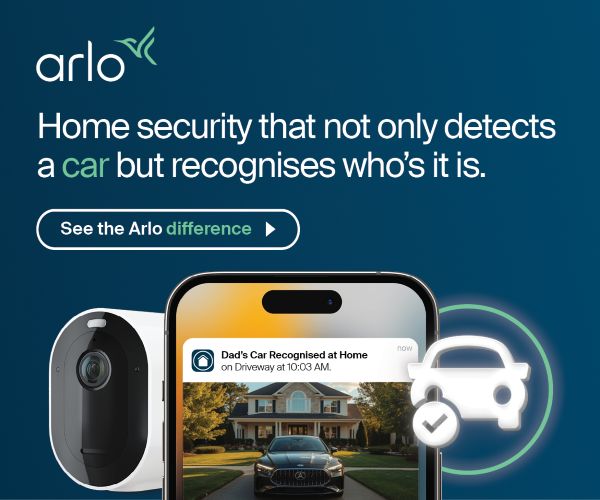


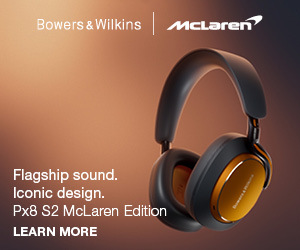
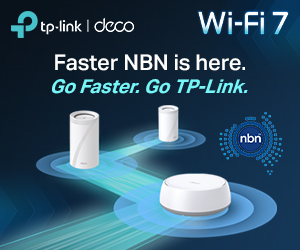

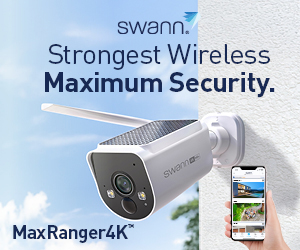


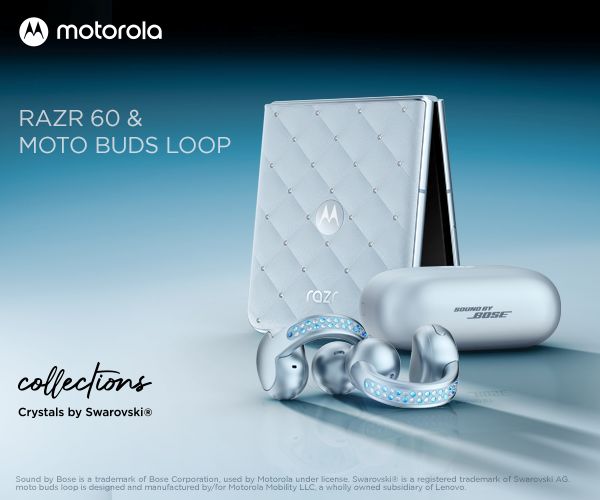
2 comments
Ray
I surprised you said the Nokia G42 comes with NFC considering JBHIFI told me it does not come with this important feature Aussies love.
Ray Shaw
Who do you believe? JB or a tech with 40 years experience that tests over 70 aspects of a phone. First the website says it does https://www.nokia.com/phones/en_au/nokia-g-42/specs?sku=101Q5003H064. Second our tests show it has SEC-NFC. Third go to Settings, Connected Devices, Connection preferences and there is NFC.
Cheers